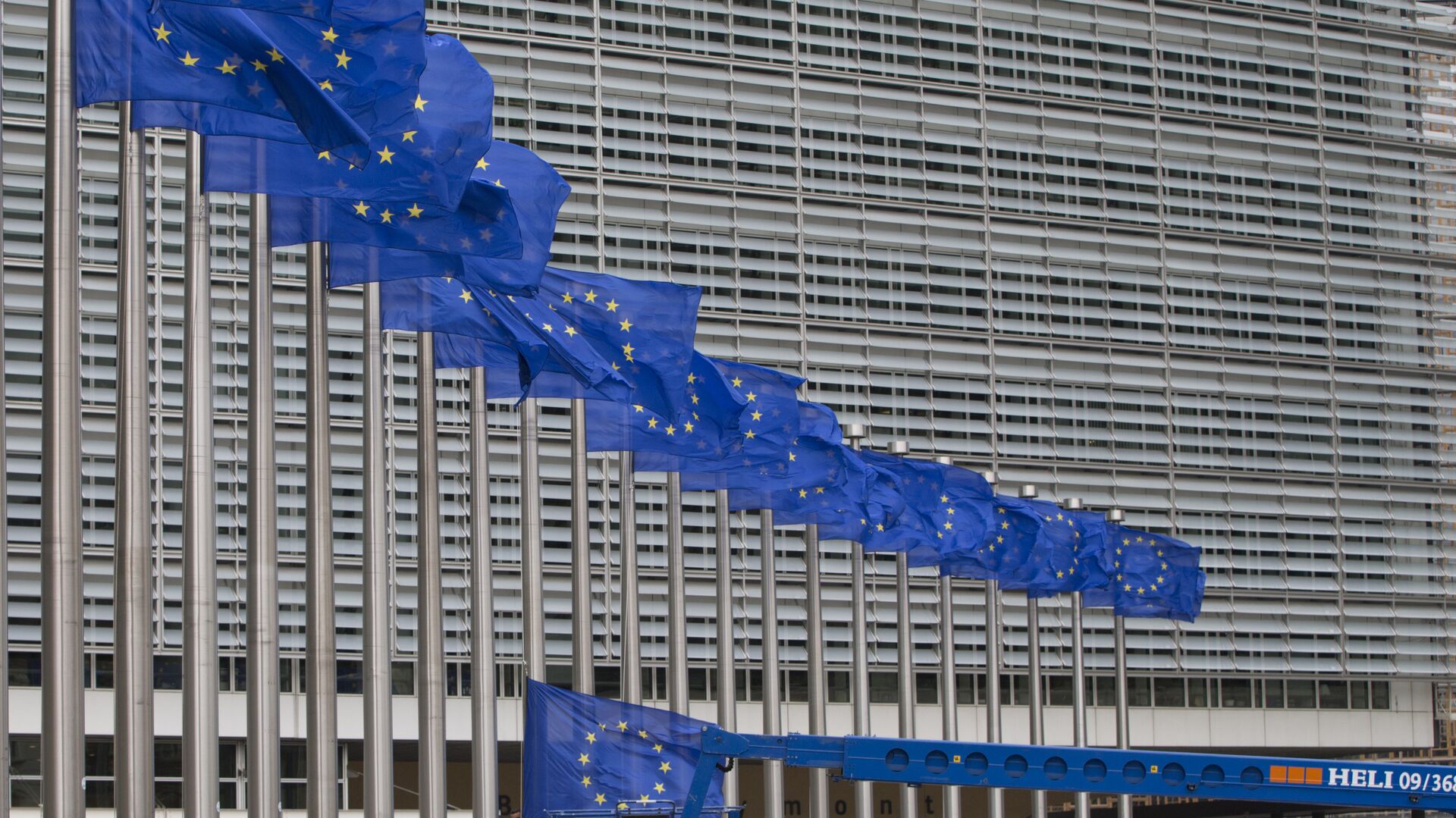https://sputnikglobe.com/20221112/why-is-eu-increasingly-struggling-to-cobble-together-aid-to-ukraine-1104043933.html
Why is EU Increasingly Struggling to Cobble Together Aid to Ukraine?
Why is EU Increasingly Struggling to Cobble Together Aid to Ukraine?
Sputnik International
the european union is finding it increasingly hard to churn out new sanctions packages targeting russia while funneling more aid to Ukraine
2022-11-12T08:37+0000
2022-11-12T08:37+0000
2022-11-18T13:41+0000
world
russia
péter szijjártó
hungary
european union (eu)
sanctions
energy crisis
cost of living
https://cdn1.img.sputnikglobe.com/img/104743/17/1047431761_0:271:3757:2384_1920x0_80_0_0_568b04d5ca54b08b60d387d2f62a042d.jpg
Churning out new sanctions packages targeting Russia while funneling more aid to Ukraine is becoming ever more "cumbersome" for the European Union (EU), media reports reveal.With the energy crisis and double-digit inflation causing prices on everything from fuel, food and heating to rocket, dealing with domestic needs is starting to take precedence over the US-driven calls continuously to prop up the Kiev regime.Countries on the European continent are starting to wonder why they need to support Ukraine to their own detriment, and are starting to grow suspicious over new “Russia sanctions”. In fact, as their citizens reel from soaring household bills and plummeting purchasing ability, people are demanding that their EU leaders push back sanctions and are asking why a more diplomatic effort hasn't been tried to find an end to the Ukraine crisis.Sanctions ‘Fatigue’On 9 November, the European Union (EU) unveiled a whopping $18Bln aid package for Ukraine, which, if passed, would come in the form of “highly concessional loans, disbursed in regular instalments as of 2023”. The passing of the Ukraine aid package would require a unanimous vote from the 27 EU countries.However, Hungary lost no time in voicing its open opposition to the plan. Péter Szijjártó, Hungarian Minister of Foreign Affairs and Trade, pointed out that his country had done its share by providing Ukraine’s health, education, cultural and religious institutions with hundreds of millions of euros as part of support amid the COVID-19 pandemic.The Hungarian minister previously branded the sanctions on Russia because of its special military operation in Ukraine a "total failure". Hungary’s Prime Minister, Viktor Orban, has spent months criticizing the European Union over its self-harming Russia sanctions policy. Budapest refused to allow NATO military equipment to be transferred to Ukraine through Hungary, and repeatedly called for urgent peace negotiations between Moscow and the West to end the security crisis.Moscow has stated on many occasions that it is ready to resume full-scale talks with Kiev, but so far the authorities there, starting from Ukrainian President Volodymyr Zelensky down to his army of advisers, have rejected negotiations.Hungary’s push-back comes as a swell of popular protests has been welling up across the EU over the cost of living crisis and the hurtful spillover from the sanctions regime.Workers in Athens, Greece, opted for a one-day walk-out that was supported by trade unions, such as the General Confederation of Greek Worker and the Supreme Administration of Greek Civil Servants Trade Union (ADEDY). Wages, claimed the striking workers, were failing to keep pace with rocketing inflation.In France, public transport workers and other staff in the capital and throughout the Ile-de-France region resorted to industrial action over wages and the cost of living crisis. Earlier, on 27 September, staff of transnational energy groups TotalEnergies and Esso-ExxonMobil demanded a pay rise of at least 10 percent against the background of inflation.Czech capital Prague saw thousands of people turn out in October to protest against elevated energy costs and to ensure that direct contracts with gas suppliers, including Russia, were in place. A smaller-scale rally was reportedly held in another major Czech city - Brno."Russia is not our enemy, the government of warmongers is the enemy," one of the protestors said during the demonstration, local media reported.In Rome, an estimated 100,000 demonstrating Italians took to the streets recently, calling on the government to end weapons shipments to Ukraine. The rally was reportedly organized by trade unions, numerous Catholic associations and peace groups.With the European Parliament conceding that almost half of Greeks and 43 percent of the population of Italy look favorably on lifting sanctions against Moscow, governments across the European continent are going to have ever more difficulty caving in to Washington’s demands to continue to pump aid to Ukraine. With the specter of “war fatigue” increasingly eroding support for Kiev across the European continent, people in the US are also beginning to show a desire for a diplomatic solution to the Ukraine conflict, according to a recent poll. More than 50 percent of the respondents were supportive of negotiations to end the Ukraine conflict, the survey carried out by the Washington-based Quincy Institute for Responsible Statecraft and Data for Progress showed.Speaking ahead of the November mid-term elections in the US, House Minority Leader Kevin McCarthy said on 18 October that Ukraine need not expect to receive blank checques for aid if Republicans took back the House. Similar skepticism about endlessly funneling aid to Ukraine was expressed by Republican Representative Marjorie Taylor Greene, who was re-elected on 8 November in Georgia’s 14th Congressional District.As fissures start to show, it’s an open question as to how long European governments can continue to succumb to pressure from the Biden administration to maintain exhausting spending regardless of the bloc's economic difficulties.
https://sputnikglobe.com/20221111/eu-slow-with-new-russia-sanctions-due-to-lack-of-tools-sanction-fatigue---source-1104029884.html
https://sputnikglobe.com/20220922/hungarys-orban-declares-war-on-brussels-russia-sanctions-policy-in-closed-door-party-meeting-1101082967.html
https://sputnikglobe.com/20221028/thousands-of-czech-protesters-demand-new-government-gas-talks-with-russia---reports-1102814418.html
https://sputnikglobe.com/20221111/backfiring-russia-sanctions-may-fuel-growing-us-eu-rift-amid-fracturing-of-support-for-kiev-1104001951.html
russia
hungary
Sputnik International
feedback@sputniknews.com
+74956456601
MIA „Rossiya Segodnya“
2022
News
en_EN
Sputnik International
feedback@sputniknews.com
+74956456601
MIA „Rossiya Segodnya“
Sputnik International
feedback@sputniknews.com
+74956456601
MIA „Rossiya Segodnya“
why is eu increasingly struggling to cobble together aid to ukraine, churning out new sanctions packages targeting russia while funneling more aid to ukraine is becoming ever more cumbersome for the european union, energy crisis and double-digit inflation, prices on fuel, food and heating skyrocketing, dealing with domestic needs to take precedence over the us-driven calls to prop up kiev regime
why is eu increasingly struggling to cobble together aid to ukraine, churning out new sanctions packages targeting russia while funneling more aid to ukraine is becoming ever more cumbersome for the european union, energy crisis and double-digit inflation, prices on fuel, food and heating skyrocketing, dealing with domestic needs to take precedence over the us-driven calls to prop up kiev regime
Why is EU Increasingly Struggling to Cobble Together Aid to Ukraine?
08:37 GMT 12.11.2022 (Updated: 13:41 GMT 18.11.2022) Russian sanctions “fatigue” is something from which Washington’s European allies are suffering more and more these days, as what was drummed up to be “crippling” restrictions on Moscow - because of its special military operation in Ukraine - has boomeranged to give the EU nations a painful wallop in turn.
Churning out new
sanctions packages targeting Russia while funneling more aid to Ukraine is becoming ever more "cumbersome" for the European Union (EU), media reports reveal.
With the
energy crisis and double-digit inflation causing prices on everything from fuel, food and heating to rocket, dealing with domestic needs is starting to take precedence over the US-driven calls continuously to prop up the Kiev regime.
Countries on the European continent are starting to wonder why they need to support Ukraine to their own detriment, and are starting to grow suspicious over new “Russia sanctions”. In fact, as their citizens reel from soaring
household bills and plummeting purchasing ability, people are demanding that their EU leaders push back sanctions and are asking why a more diplomatic effort hasn't been tried to find an end to the Ukraine crisis.
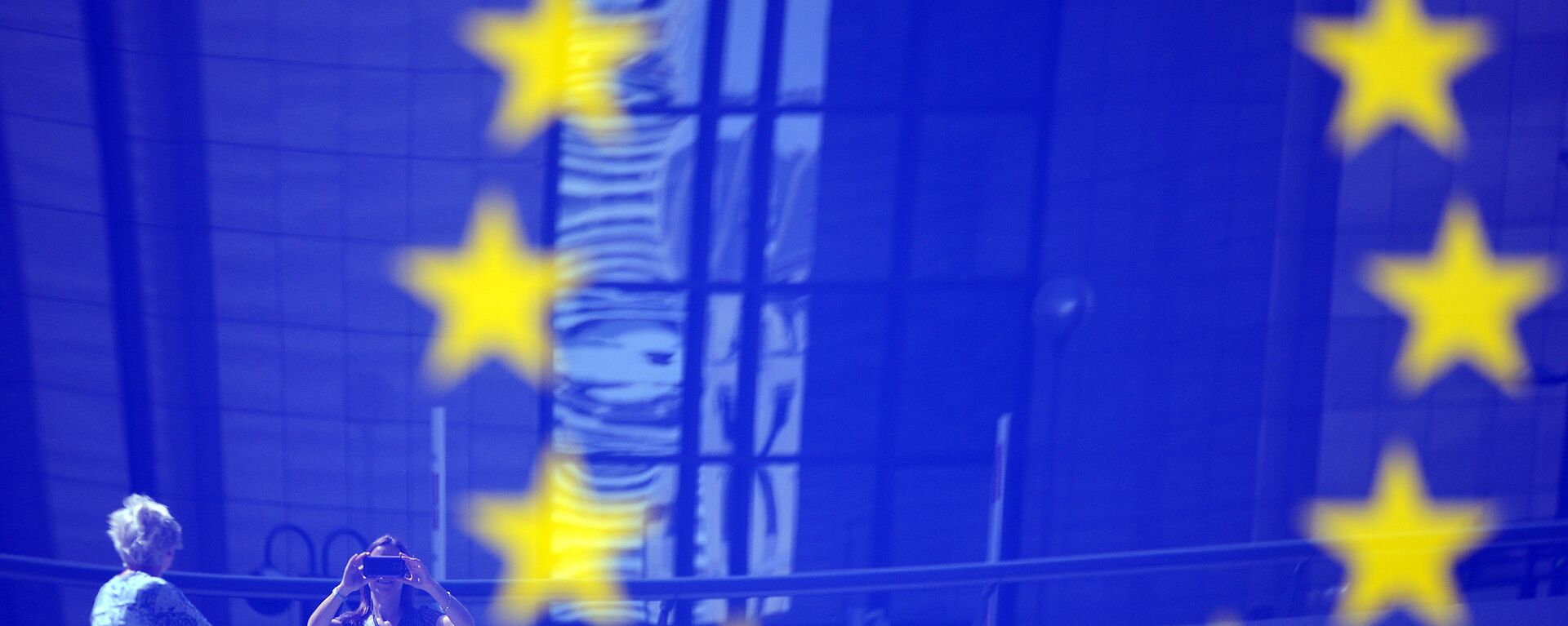
11 November 2022, 18:03 GMT
On 9 November, the European Union (EU) unveiled a whopping $18Bln aid package for Ukraine, which, if passed, would come in the form of “highly concessional loans, disbursed in regular instalments as of 2023”. The passing of the Ukraine aid package would require a unanimous vote from the 27 EU countries.
However,
Hungary lost no time in voicing its open opposition to the plan. Péter Szijjártó, Hungarian Minister of Foreign Affairs and Trade, pointed out that his country had done its share by providing Ukraine’s health, education, cultural and religious institutions with hundreds of millions of euros as part of support amid the COVID-19 pandemic.
"We will certainly not support any kind of joint EU borrowing in this field. Why? Because we have already done it once. We supported joint borrowing during the coronavirus epidemic, and that was more than enough," Szijjártó was cited by local media as saying
The Hungarian minister previously branded the sanctions on Russia because of its special military operation in Ukraine a "total failure". Hungary’s Prime Minister, Viktor Orban, has spent months criticizing the European Union over its
self-harming Russia sanctions policy. Budapest refused to allow NATO military equipment to be transferred to Ukraine through Hungary, and repeatedly called for urgent peace negotiations between Moscow and the West to end the security crisis.
Moscow has stated on many occasions that it is ready to resume full-scale talks with Kiev, but so far the authorities there, starting from Ukrainian President Volodymyr Zelensky down to his army of advisers, have rejected negotiations.
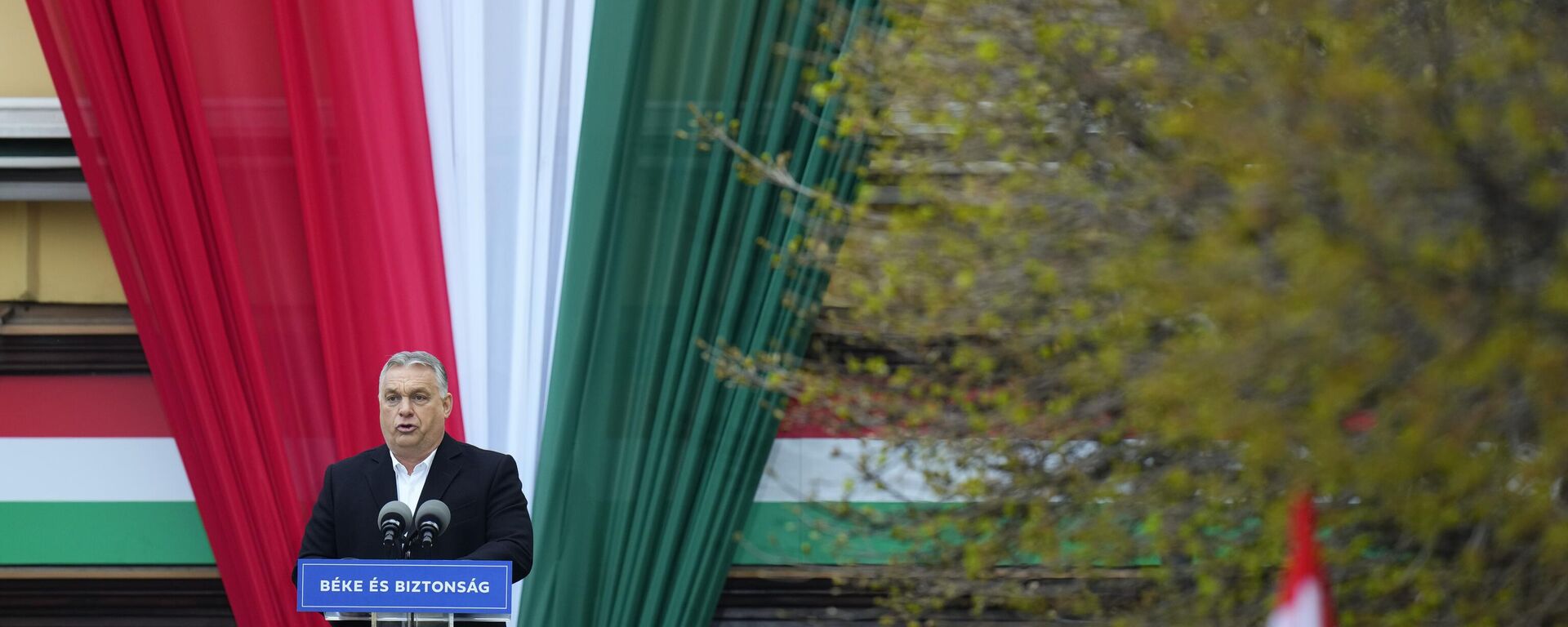
22 September 2022, 11:07 GMT
Hungary’s push-back comes as a swell of
popular protests has been welling up across the EU over the cost of living crisis and the hurtful
spillover from the sanctions regime.
Workers in Athens, Greece, opted for a one-day walk-out that was supported by trade unions, such as the General Confederation of Greek Worker and the Supreme Administration of Greek Civil Servants Trade Union (ADEDY). Wages, claimed the striking workers, were failing to keep pace with rocketing inflation.
"The workers of our country, both in the public and the private sector, are fighting against the accuracy that is strangling households and citizens," read a statement by ADEDY.
In France, public transport workers and other staff in the capital and throughout the Ile-de-France region resorted to industrial action over wages and the cost of living crisis. Earlier, on 27 September, staff of transnational energy groups TotalEnergies and Esso-ExxonMobil demanded a pay rise of at least 10 percent against the background of inflation.
Czech capital Prague saw thousands of people turn out in October
to protest against elevated energy costs and to ensure that direct contracts with gas suppliers, including Russia, were in place. A smaller-scale rally was reportedly held in another major Czech city - Brno.
"Russia is not our enemy, the government of warmongers is the enemy," one of the protestors said during the demonstration, local media reported.
In Rome, an estimated 100,000 demonstrating Italians took to the streets recently, calling on the government to end weapons shipments to Ukraine. The rally was reportedly organized by trade unions, numerous Catholic associations and peace groups.
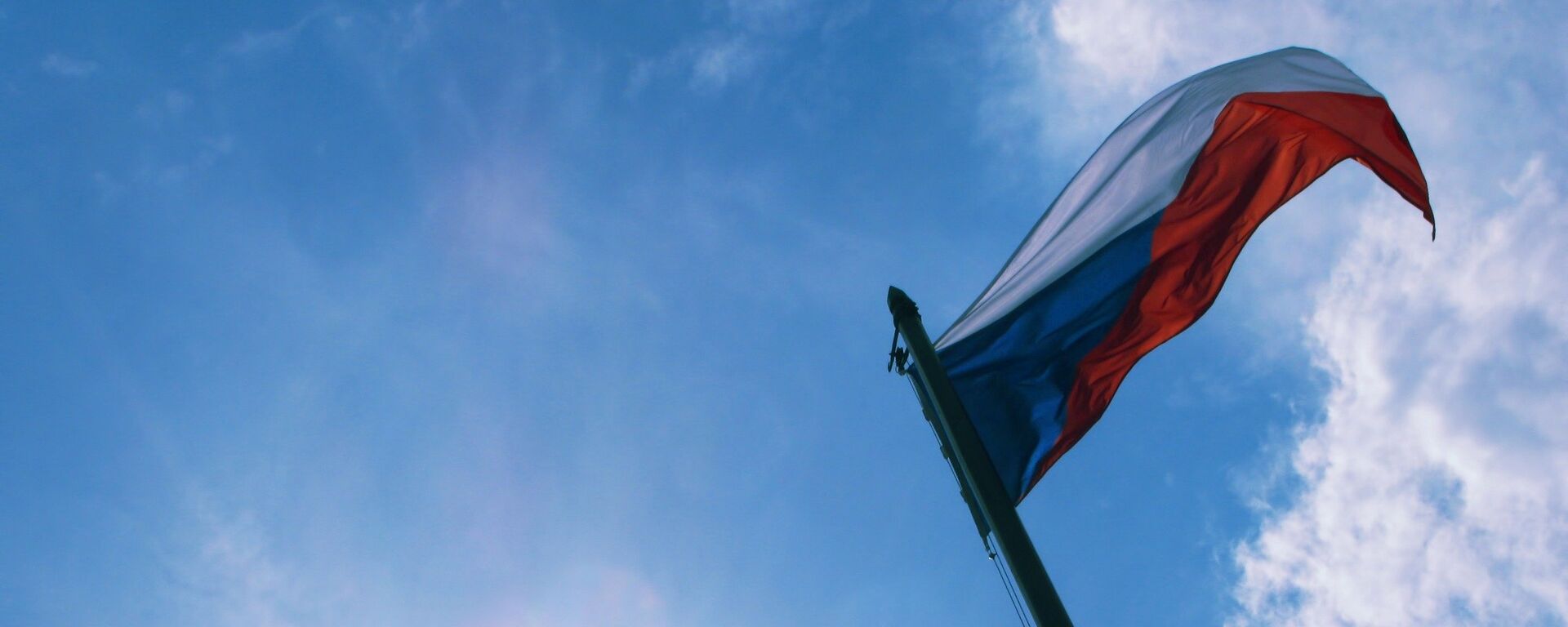
28 October 2022, 23:35 GMT
With the European Parliament conceding that almost half of Greeks and 43 percent of the population of Italy look favorably on lifting sanctions against Moscow, governments across the European continent are going to have ever more difficulty caving in to Washington’s demands to continue to pump aid to Ukraine. With the specter of “war fatigue” increasingly
eroding support for Kiev across the European continent, people in the US are also beginning to show a desire for a diplomatic solution to the Ukraine conflict, according to a recent poll.
More than 50 percent of the respondents were supportive of negotiations to end the Ukraine conflict, the survey carried out by the Washington-based Quincy Institute for Responsible Statecraft and Data for Progress showed.
Speaking ahead of the November
mid-term elections in the US, House Minority Leader Kevin McCarthy said on 18 October that Ukraine need not expect to receive blank checques for aid if Republicans took back the House. Similar skepticism about endlessly funneling aid to Ukraine was expressed by Republican Representative Marjorie Taylor Greene, who was re-elected on 8 November in Georgia’s 14th Congressional District.
As
fissures start to show, it’s an open question as to how long European governments can continue to succumb to pressure from the Biden administration to maintain exhausting spending regardless of the bloc's economic difficulties.
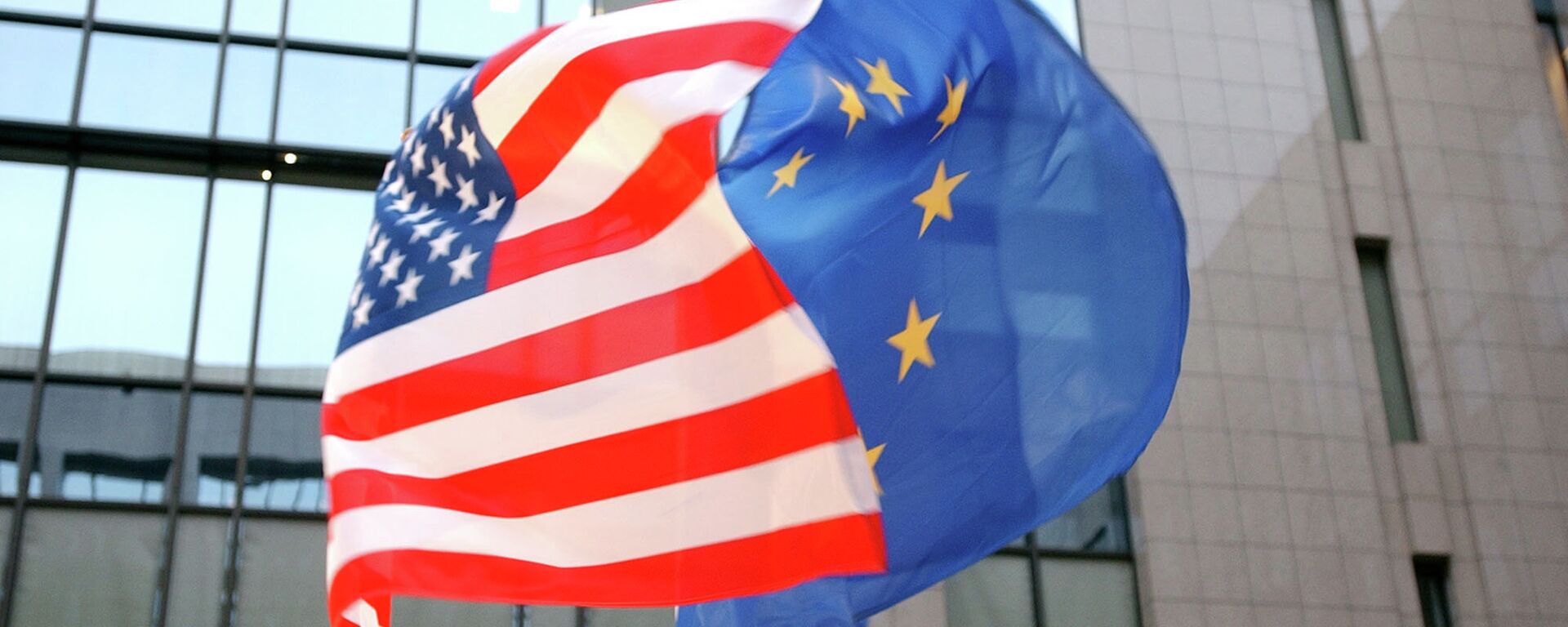
11 November 2022, 06:47 GMT
